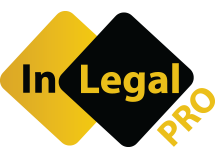EU minimum wages grew cautiously amid COVID-19 economic uncertainty

The economic uncertainty created by the COVID-19 pandemic slowed, but did not stop, overall minimum wage growth in the EU in 2021. Minimum wages were raised cautiously in most Member States, with the median country recording an increase of 3%. Only a few Member States froze their minimum wage rates, marking a very different approach to that taken in the aftermath of the 2008 financial crisis. This is according to Eurofound’s new publication Minimum wages in 2021: Annual review, published in Dublin today.
The report summarises how minimum wage rates for 2021 were set during 2020 – the year marked by the COVID-19 pandemic – and reviews the difficulties faced by national decision-makers in setting rates. It notes that the main challenge faced by decision-makers during the 2020 round of minimum wage setting was the general economic uncertainty surrounding the pandemic. It also discusses advances made on the EU initiative on adequate minimum wages and maps the reactions of the EU-level social partners and national decision-makers.
Minimum wages are analysed on both a monthly and hourly basis in the report, with accompanying resources providing an overview of developments for low-paid employees and minimum wage workers over the past decade, as well as summarising the most recent research on minimum wages in EU Member States, Norway and the UK. With regards to converted gross monthly minimum wages, the report shows that Luxembourg has the highest rate in the EU in 2021 (€2,202), followed by Ireland (€1,724) and the Netherlands (€1,685). The lowest converted rates were observed in Bulgaria (€332), Hungary (€467) and Romania (€472). Although the gap in rates remains significant, the report notes a clear process of convergence in minimum wages in the EU over the past decade, with progress made in many central and eastern Member States.
In countries without statutory minimum wages (Austria, Denmark, Finland, Italy, Sweden and Norway), wage increases were moderate, but bargaining overall proved reasonably stable. Because collective bargaining was in some cases affected by the pandemic, some renewals and pay increases were postponed.
Speaking on the publishing of the report, Maria Jepsen, Eurofound Deputy Director, emphasised the importance of ensuring a decent standard of living for low-paid workers: ‘Periods of crisis – such as the Great Recession and the COVID-19 pandemic – affect lower-paid and minimum wage workers more than other groups. Debates around the adequacy of minimum wages should not only focus on technical criteria around indicative thresholds, but also on broader indications of whether low-paid workers can attain a decent standard of living, both individually and for their families.’
en.delfi.lt
LEAVE A REQUEST FOR A FREE CONSULTATION
UAB InLegal PRO
Успешный бизнес в Европе с нуля: регистрация и продажа фирм, вид на жительство (ВНЖ), правовое сопровождение, бухгалтерские услуги. Юридические и финансовые консультации.
Условия и правила предоставления услуг
Политика конфиденциальности
Код предприятия: 304291346
НДС код: LT100011233910
Пр. Конституции 12-221, Вильнюс
Литва, LT-09308
Пн. – Пт.: с 8:00 до 17:00




